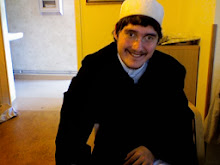
A Deep Insight to the Dynamics of Soviet Government
Beyond the Prejudice of Western Imperialism
a review of the book “Human Rights in Soviet Society” by Jan Freidun Taravosh
December 21st-22nd 2009
“There was no example and experience to draw upon, means were lacking and wars interfered. How we began, what difficulties and obstacles we surmounted and what we finally achieved are what this book is about”
-Konstantin Ustinovich Chernenko
Introduction:
Konstantin Chernenko who grew up in Siberia during the serfdom of then Czarist Russia, uses the book Human rights in Soviet Society to provide the reader with a deeper understanding of life in the Union of Soviet Socialist Republics drawing from the historical experience of the days of Serfdom in the Czarist empire, the the days of the Great October Revolution and socialist construction in the midst of world wars and imperialist pressure during the cold war.
Comrade Chernenko providing a deeper understanding of life in the soviet union
The Author presents even the newcomer to the subject with easy to access information. Although Comrade Chernenko several times refers to author such as Marx and Engels and other soviet leaders such as Brezhnev and Lenin, one does not have to be a specialist in scientific socialism to understand the basic meaning of this book.
Socialism, Capitalism and the Different Views of Human Rights
In introducing the subject the author makes clear the reasons why Human rights is perceived differently in capitalist society and explains what are the basic characteristics of these differences. Against the backdrop of U.S Imperialist vilification campaigns, which relentlessly attacks anything beyond the realms of imperialism. Chernenko explains the basis of this demonising campaign by saying: “Western propagandists try to present imperialism as a champion of democracy, humanness and justice. they lay particular stress on the ‘innate’ rights of man unconcerned with any socio-economic foundation. In turning to the special characteristics of development in soviet society the other does refer briefly to the basic concepts of scientific socialism such as dialectics and historical but does so not in such a way that the text becomes too theoretic, or too hard to access even for novice readers.
The books strength lies in that the book fully reveals a more diversified picture of Soviet government, far beyond the one sided perceptions that persist in the west. For instance the basic structure of the councils is explained, as is the organic unity of rights and duties in Soviet Society, which the author explains by saying the reader may ask on what basis the defenders of human rights make their attacks on socialism. “What they don’t like is the provision of the USSR constitution” which says: ‘Enjoyment by citizen of their rights and freedoms must not be to the detriment of the interests of the society and state or infringe upon the rights of other citizens, They regard the organic unity of citizens’ rights and duties as an ‘intolerable limitation’ of the rights of the individual.
Chernenko answers swiftly to such claims by clarifying that the same relation between rights and duties is clarified in the universal declaration of human rights. In this way cherneko reveals that it is in fact rampant individualism that runs counter to the concept of democracy and human rights, not collectivism which remains a strong foundation for democracy.
An Rare Insight to the Diverse Dynamics of Soviet Society.
By western historians and imperialist, The USSR was and still is (for the most part) referred to as a country isolated from the rest of the world, however Chernenko reveals it’s quite the contrary and apart explaining the basic concepts of governance and life in the USSR. The government structure is explained at state level and grassroots level alike chapters like “All Power to the Soviets” and The organisations of the working people, the dynamic life in the multiethnic society on the basis is being dealt with in the chapter on friendship and fraternity, and one chapter is focused on the emancipation of women. apart from giving the reader a more dynamic insight of soviet society far from the one sided perspective dominant in the west, also proving that The USSR was far from isolated from the western world, comrade Chernenko makes a clear comparison between the electoral system of the United states and Union of Soviet Socialist Republics, having been elected a deputy to the supreme soviet since 1966, the author shows that he knows what he is talking about. At the same time for one thing the truly progressive side of socialism is clarified in a way that it’s rarely talked about - for one thing did you know that the USSR as the first country in the world stipulated laws on sustainable development and environmental protection - and speaking of human rights this book duly clarifies the right to work, the right to education and access to culture as a basic human rights and as such it is a very enlightening and enjoyable read, a book that moves far beyond the prejudice of western imperialism and reveals a different side of the Soviet Union.
Worth nothing is that at a the time of the Cold War demonising campaigns from the imperialist camp were hurled at the Soviet Union - nevertheless Comrade Chernenko stresses the importance of cultural exchange with western nations. As such this book is a true eye opener and I recommend it to anyone.

Inga kommentarer:
Skicka en kommentar